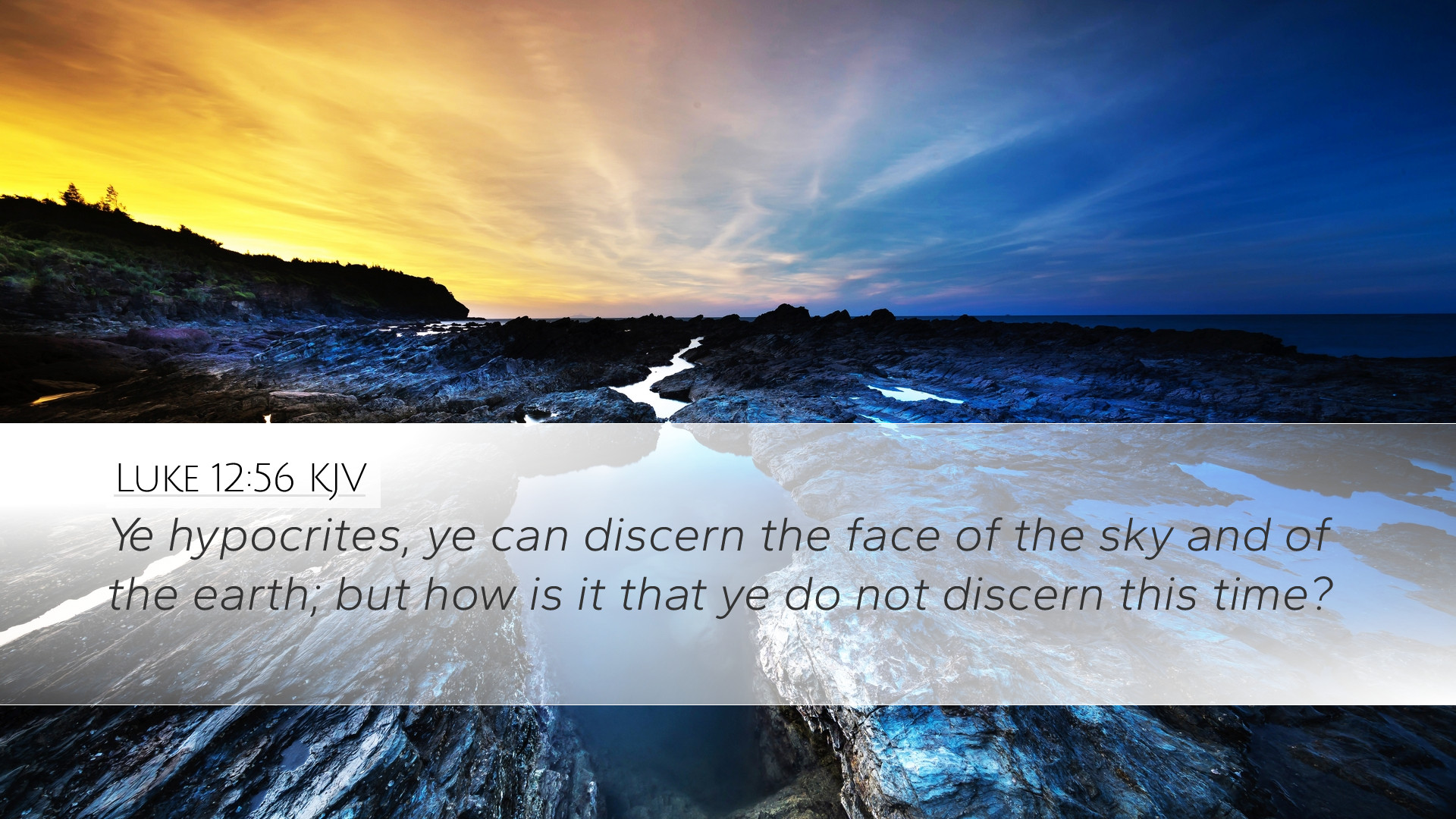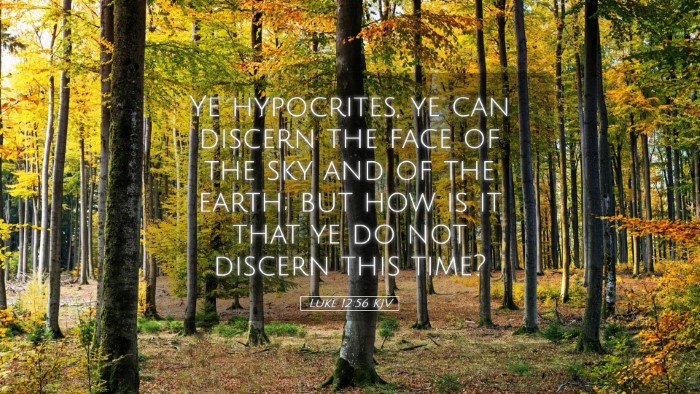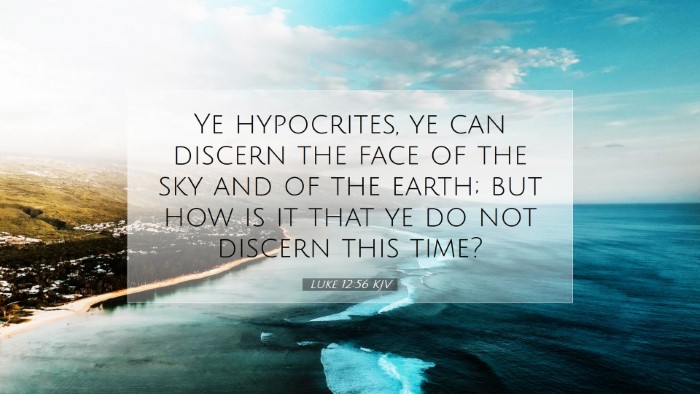Commentary on Luke 12:56
In Luke 12:56, Jesus challenges the crowds by saying, "Ye hypocrites, ye can discern the face of the sky and of the earth; but how is it that ye do not discern this time?” This verse is rich with theological significance and invites an exploration of discernment, the role of the Messiah, and the urgency of recognizing the signs of the times.
Overview of the Passage
This admonition comes during a period of teaching where Jesus addresses various topics including the importance of watchfulness and the need for spiritual insight. The term "hypocrites" reflects a serious indictment of the religious leaders and people of His day, who possessed the ability to interpret natural signs but failed to recognize the Messiah's presence and the kingdom of God that was breaking forth among them.
The Call for Discernment
Jesus' rhetorical question emphasizes a fundamental inconsistency: the ability to gauge weather patterns while being oblivious to profound spiritual realities. As Matthew Henry notes in his commentary, the observance of natural signs could inform one's actions, yet the same individuals were unable to perceive the spiritual urgency of their times. This calls for a deeper understanding of spiritual discernment, which often requires more than mere observation; it demands a relationship with God and an openness to His revelations.
Implications for the Church
For modern-day believers, this verse serves as a prompt to critically evaluate our discernment regarding God’s movements in our lives and communities. As Albert Barnes points out, the ability to see the signs of the times is pivotal for one’s spiritual journey. If church leaders, students, and theologians alike are to guide others effectively, they must first be attuned to the ways God is working in their midst.
Characteristics of Hypocrisy
Jesus’ use of the term “hypocrites” denotes a dual aspect: an external life that may appear righteous yet conceals a heart that is spiritually blind. Adam Clarke elaborates on this by suggesting that hypocrisy involves a deliberate neglect of what one ought to see—in this case, the arrival of the kingdom through Christ. It reflects a broader human struggle: the failure to live in light of divine revelation, choosing instead to focus on worldly understandings.
Practical Applications
- Self-Examination: Believers are challenged to introspect and assess whether they are guilty of a similar spiritual blindness.
- Teaching and Preaching: Pastors and teachers are encouraged to foster an environment that promotes discernment among their congregations, focusing on recognizing God's presence.
- Community Engagement: The call is also to engage with broader societal issues, discerning how these relate to God’s kingdom and prophetic timeline.
The Need for Urgency
Christ’s lament over the inability to discern the times is intertwined with an urgent call to repentance and readiness. The implication is that failing to recognize Jesus as the Messiah leads to dire consequences. The urgency is significant in the context of biblical prophecy, as emphasized by Matthew Henry, who reflects on the notion that recognizing God’s intervention in human history is essential for the faithful.
The Eschatological Dimension
In eschatological terms, this call to discernment echoes through the ages. The notion that signs will precede the return of Christ is prevalent throughout the New Testament. This verse therefore functions not just as a criticism of the scribes and Pharisees of Jesus' time but extends its relevance to all generations who must remain watchful and discerning. Albert Barnes highlights that today's readers are equally accountable to interpret current events in light of Scripture—what does it mean for us today?
Conclusion
In summary, Luke 12:56 is a profound reminder of the value of spiritual discernment in the context of contemporary faith. It compels all readers—pastors, students, theologians, and laypersons—to seek deeper understanding and awareness of God's activity in the world. By fostering discernment, the church can cultivate a community that not only observes the cultural and spiritual climate but actively participates in God's redemptive narrative.
Let us strive for greater awareness, recognizing the signs and responding faithfully to the call of Christ in our respective contexts, ensuring that we are not among the hypocrites who can read the times of nature but miss the momentous works of grace unfolding before us.


